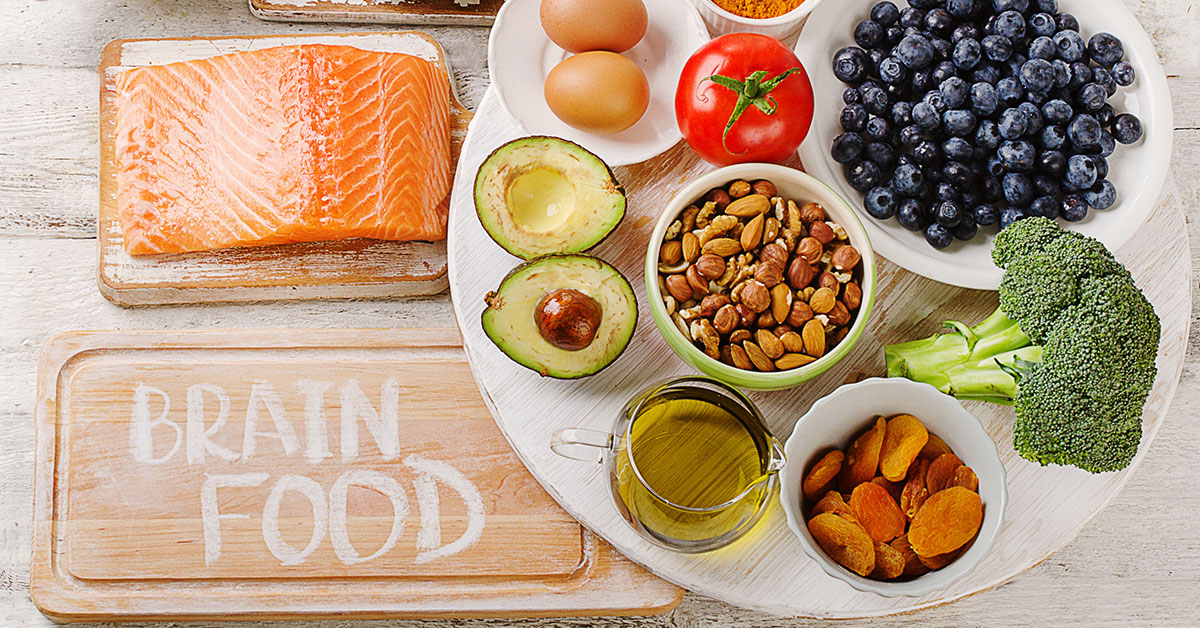There is no denying that 2020 was a particularly difficult year for so many people around the globe. One in five Australians aged 16 to 85 experienced a mental illness during the COVID-19 pandemic, illustrating that mental illness was twice as prevalent in 2020 in comparison to non-pandemic years.
The role nutrition plays in managing our mental health
A ground-breaking study released in 2018 called the SMILES trial investigated the link between nutrition and depression. In particular, the study found the consumption of specific food types can increase or decrease symptoms of mental health, along with dietary education:
- Foods that increase symptoms related to mental health: Regular consumption of processed meats, fried foods, salty snacks, refined carbohydrates & butter.
- Foods that help decreased symptoms associated with mental health: A diet based on a variety of fruits & veg, whole grains, low-fat dairy, some lean meat, oily fish, and extra virgin olive oil (ModiMedDiet).
It is often foods that we choose to ‘pick us up’ that can often ‘bring us down’. A diet laden with heavily processed or refined foods (chocolates, biscuits, chips) may help us feel good in the short term, but they are broken down quickly and can leave us feeling sluggish. These foods are often nutrient-poor and do little to sustain us.
How does the food we eat influence our brain?
Our brain needs particular nutrients such as protein and vitamins to make the chemicals that work to keep it functioning. A deficiency in omega 3 fatty acids, vitamin B and D, folic acid, and zinc, and other nutrients can increase symptoms of mental illness. For example, folic acid is used to make the chemical serotonin and a deficiency of serotonin is linked to symptoms of depression.
How can we boost our mood through nutrition?
Choose a diet rich in:
- Fermentable fibres (prebiotics) such as vegetables, fruit and whole grains & fermented foods (probiotics) such as yoghurt, sauerkraut, kimchi, tempeh and kefir – This will help feed and boost your gut bacteria and help inflammation to help the body feel less stressed!
- B vitamins are involved in neuronal function and brain health, so including a range of whole grains, vegetables, and lean meats is an easy way to ensure adequate intake throughout the week.
- Zinc found in foods like prawns, beef, pumpkin seeds, and oats – can affect the action of serotonin (the happy hormone) in our body, so can be hugely beneficial.
- Omega 3 and vitamin D are other great nutrients found in foods such as oily fish, lean meats, eggs, and dairy products.
If I improve my diet, will my mental health improve?
There are so many great benefits to leading a healthy lifestyle. The results of the SMILES study suggests dietary improvement can positively impact the management of many mental health conditions. To put it simply – eating good food may actually put you in a good mood!
How can seeing a dietitian help me if I’m feeling a bit low?
A university-qualified dietitian can assist to optimise your health and well-being by nurturing the body with wholesome foods. Club Active Dietitian, Jean-Mari understands no single approach is right for everyone. She works with you to provide personal nutrition advice to facilitate behaviour change to help you achieve and maintain your goals.
Dietitian bookings with Jean-Mari are by appointment
BURLEIGH, BUNDALL and MURWILLUMBAH // please contact to arrange a time.
TWEED // On-site every Thursday. Contact for an appointment
PARKWOOD // On-site every Friday. Contact for an appointment
Author: Jean-Mari Mouton – Senior Dietitian // Edited: Alycia Mann – Student Dietitian

